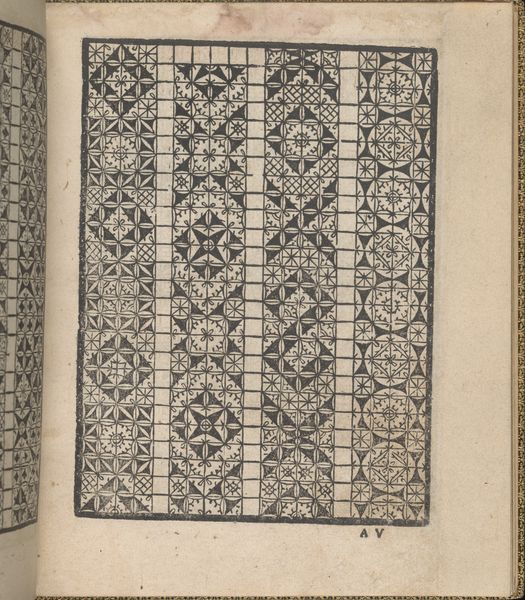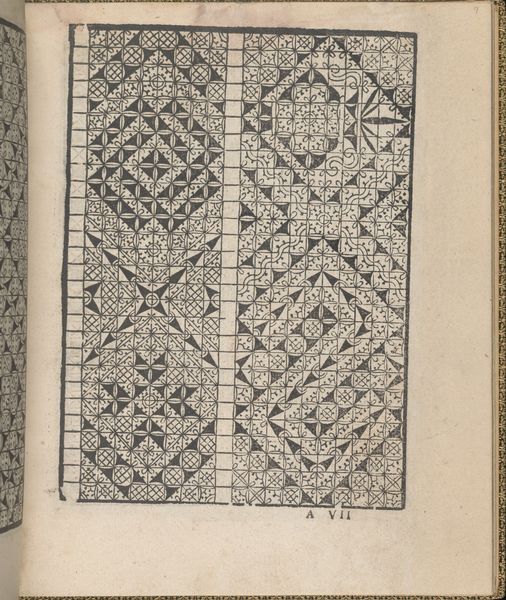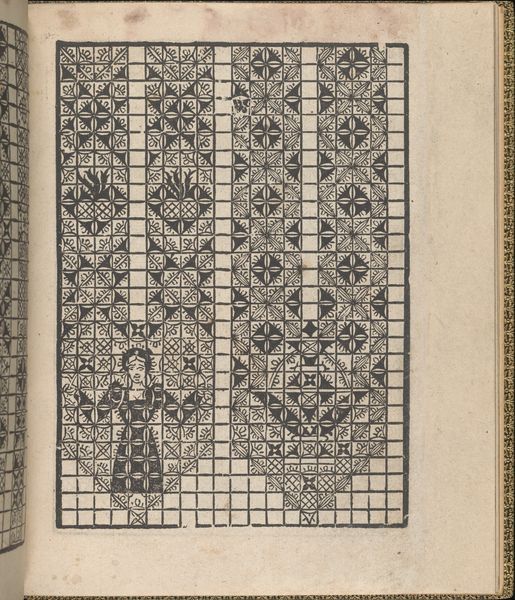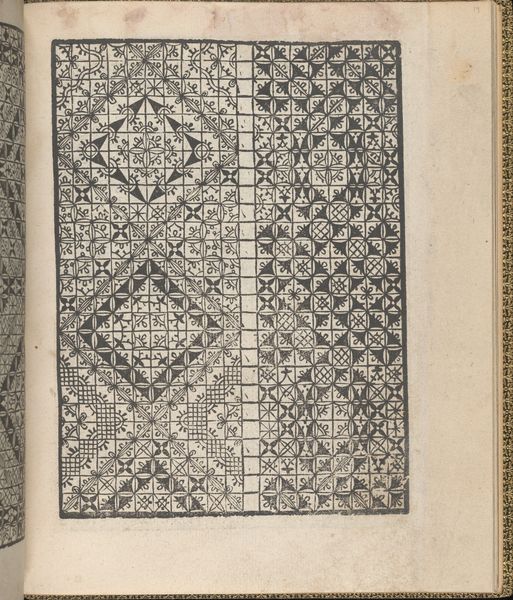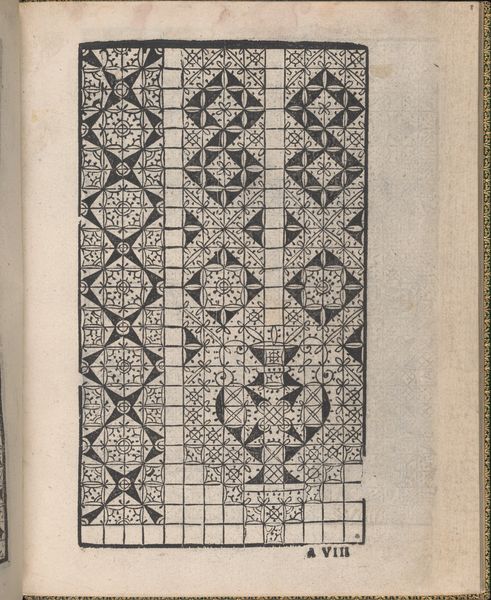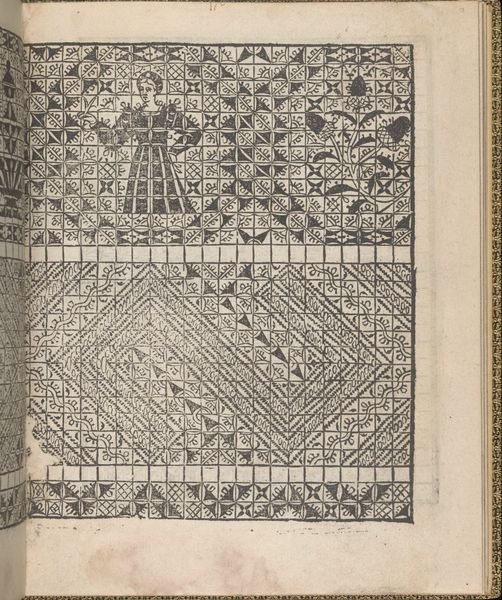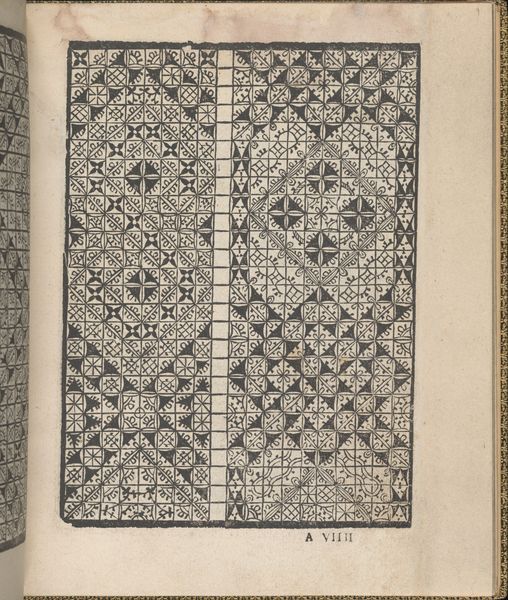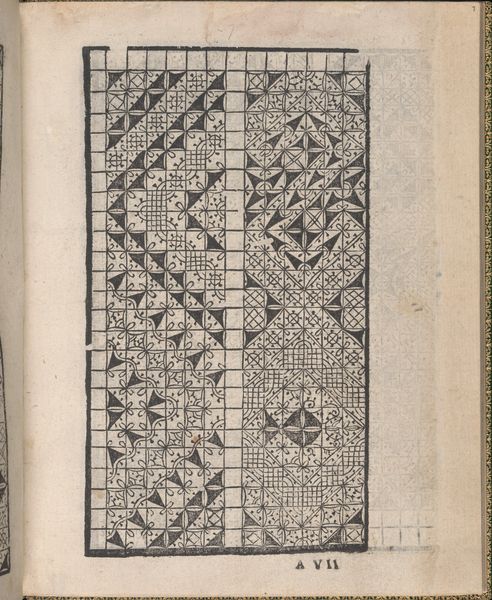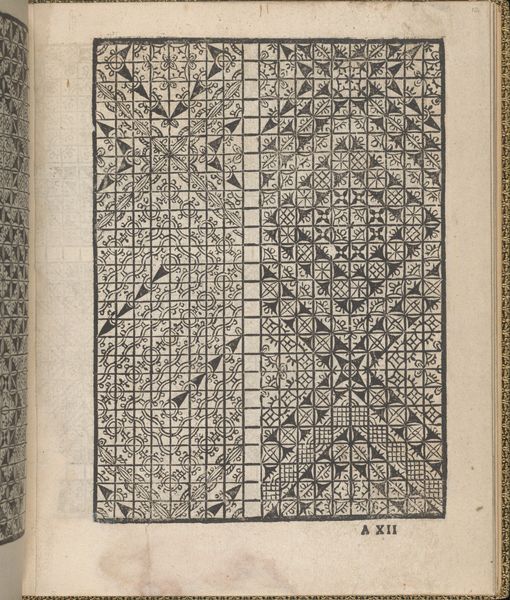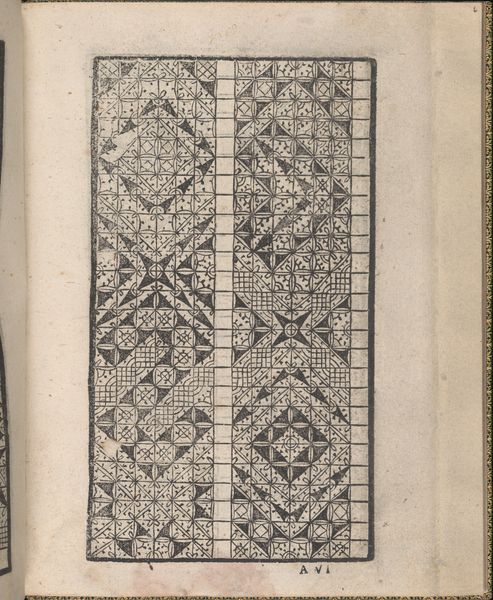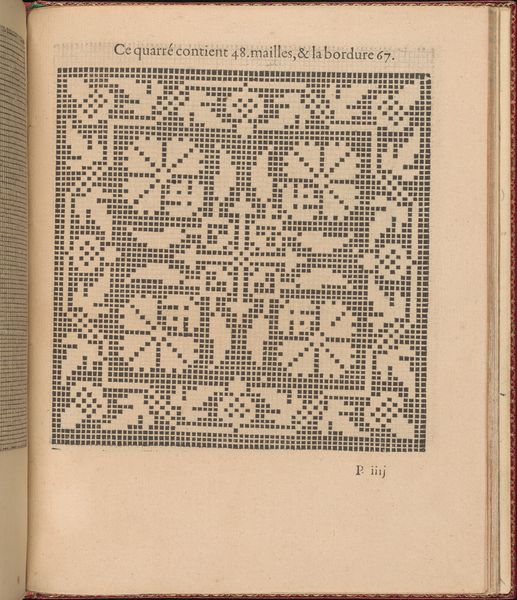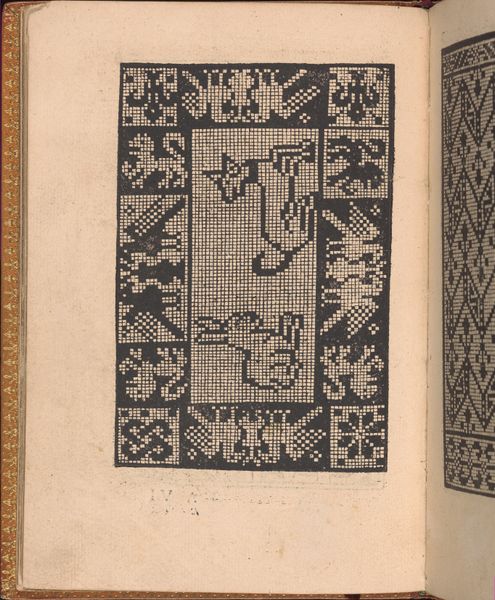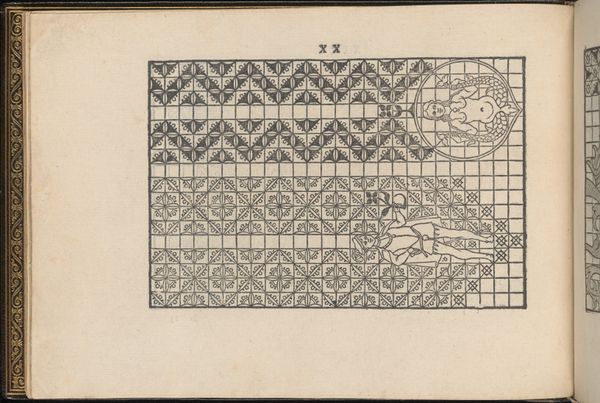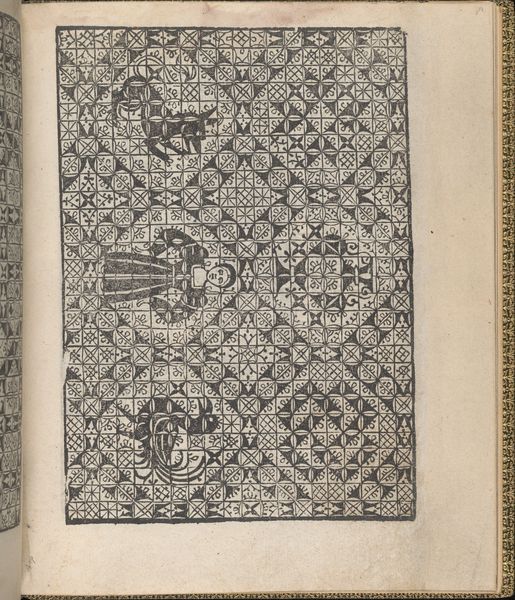
Giardineto novo di punti tagliati et gropposi per exercitio & ornamento delle donne (Venice 1554), page 5 (recto) 1554
0:00
0:00
drawing, print
#
drawing
#
medieval
# print
#
geometric
#
line
#
decorative-art
Dimensions: 7-5/8 x 6-3/8 x 1/4 in. (19.4 x 16.2 x 0.6 cm)
Copyright: Public Domain
This page comes from a book of lace patterns, made in Venice in 1554 by Matteo Pagano. It was printed using a woodblock, a process that renders the designs as crisp black lines on paper. These weren't just abstract designs. Notice the figures interspersed among the geometric forms – a man with a donkey, a heraldic shield. Lace was serious business in the 16th century. These books provided patterns for skilled artisans, mostly women, who produced luxury textiles for the wealthy. The patterns showcase the techniques of "punti tagliati et gropposi" – literally, cut and knotted stitches. Consider the labor involved: from the designer who conceived these intricate patterns, to the woodcutter who painstakingly carved the block, to the lacemakers who translated these designs into delicate fabric. Each stage demanded precision and skill. Ultimately, this unassuming page is a testament to the power of craft, and its central role in early modern culture and economy. It challenges us to see beyond the traditional boundaries of fine art, and to recognize the artistry inherent in everyday objects.
Comments
No comments
Be the first to comment and join the conversation on the ultimate creative platform.
